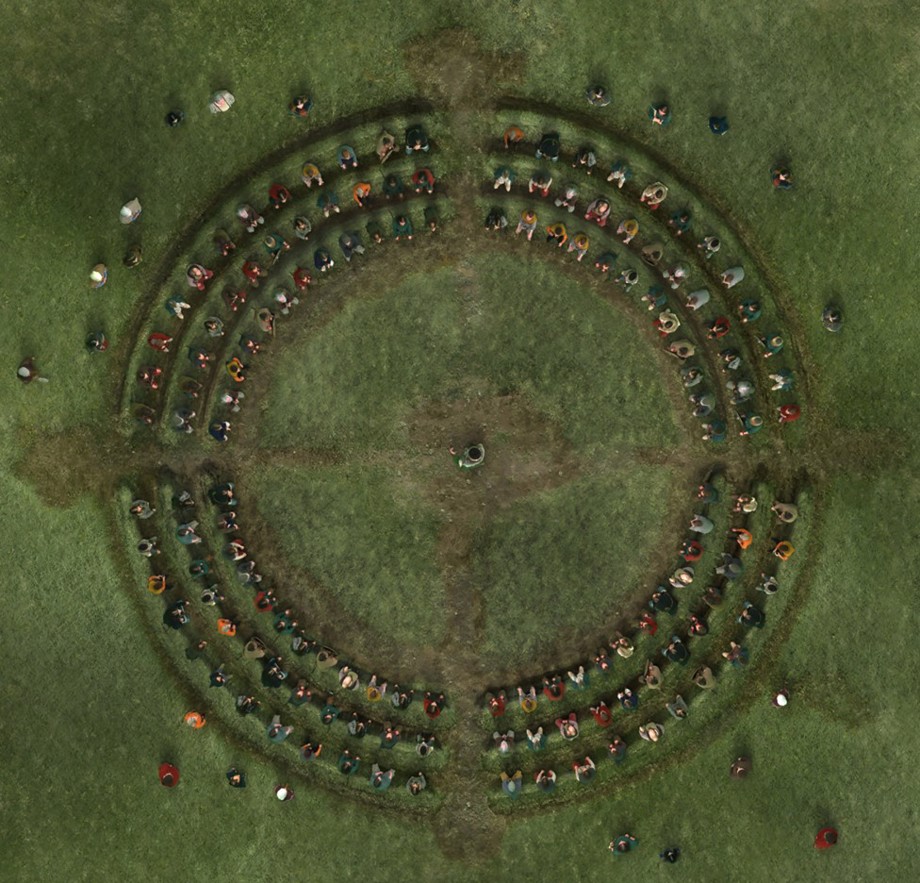Lögrétta
Lögrétta was the legislative assembly and therefore the supreme institution of the Alþing in the Commonwealth period. The work of the Lögrétta was multifaceted as it settled disputes, passed new laws and granted exemption from laws.

Lögrétta (Law court) might have been a circular structure. Chieftains (goðar) would have sat in the center circle and each with two advisors in front and behind them. From our exhibition Heart of Iceland.
Þingvellir National Park / Gagarín
Council formation
The Law Speaker governed Lögrétta meetings, at which 48 chieftains sat on a central platform. Each chieftain had two advisors who sat in front and behind him. After the bishoprics at Hólar and Skálholt were established, the bishops also had seats at the Lögrétta. The number of men who sat at the Lögrétta was thus 146, or 147 if the Law Speaker wasn't a chieftain.
The Lögrétta met on both Sundays included in the general assembly, as well as on its last day, and more often if the Law Speaker so desired. Everyone was free to follow the proceedings of the Lögrétta, but only chieftains, bishops and the lawspeaker were allowed within the circular seating area.
Location of the Lögrétta
No one knows for sure the exact original location of the Lögrétta, but many theories exist. Until the 16th century the Lögrétta was certainly located on the eastern side of the Öxará river, at which time due to changes to the river's flow, Lögrétta became isolated on a small islet and hence was moved west of the river in 1594, where a small building was constructed for it. From then on, all assembly proceedings took place in this building until 1798.

In the 18th century a house was built over Lögrétta. That house stood at Þingvellir until 1798.
Diminishing democracy
As the 13th century proceeded, tensions rose between chieftain clans which resulted in a civil war. It ended when Icelanders yielded to the authority of the Norwegian king in 1262 with Gamli Sáttmáli.
This treaty made Lögberg redundant and the Lögrétta became the only entity of the Alþing, which then became a court of law with limited jurisdiction. At a gathering in 1662, the Lögrétta members agreed to acknowledge the absolute rule of the Danish king. At that point, the responsibility and power of the Alþing diminished until the last meeting took place at Þingvellir in 1798.